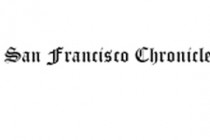Editorial: Phone Privacy Under Assault
by the Editorial Board, San Francisco Chronicle
 Measure Would Weaken Notification Law On Recording
Measure Would Weaken Notification Law On Recording
“This call may be recorded … ” has become one of the most familiar phrases for consumers when trying to contact a business for a purchase, an order, a complaint or myriad other reasons.
Businesses don’t just offer the message as a courtesy to their customers – obtaining “two-party consent” before recording a phone conversation had been the law of the state for more than two decades.
However, that law would be weakened considerably under Assembly Bill 925, authored by Assemblyman Evan Low, D-San Jose. The measure faces its first major test Tuesday in the Assembly Public Safety Committee.
Low’s ostensible rationale for the law is to reconcile the differences between the way the law treats calls to a landline and those to a cell phone or cordless home phone. Here is the distinction:
- The 1992 law governing cell and cordless phones is absolute: Both parties must consent before a call can be recorded. The “this call may be recorded” warning satisfies that requirement.
- Calls to landlines are governed by a more lenient standard under a 1967 law, which distinguishes between “confidential calls” (which requires two-party consent) and those dealing with non-confidential content (which do not).
Low’s bill alarmed an array of consumer and privacy advocates by propose that the looser landline standards should apply to wireless calls in many circumstances.
This is exactly the wrong direction to go.
Consumers have a right to know when their words are being recorded. It may well influence what personal information they would be willing to reveal to a business – or even whether they want to continue the call.
The notification requirement has not proved a burden in California or a handful of other states. It’s only been a problem for the businesses who have ignored the law – and then tried to use the secretly recorded information against a consumer.
An aide to Low suggested Monday that the bill would be amended to meet some of the concerns, Better yet, it needs to be scrapped.
Tags: 2015 Legislation, AB 925, Evan Low, Privacy